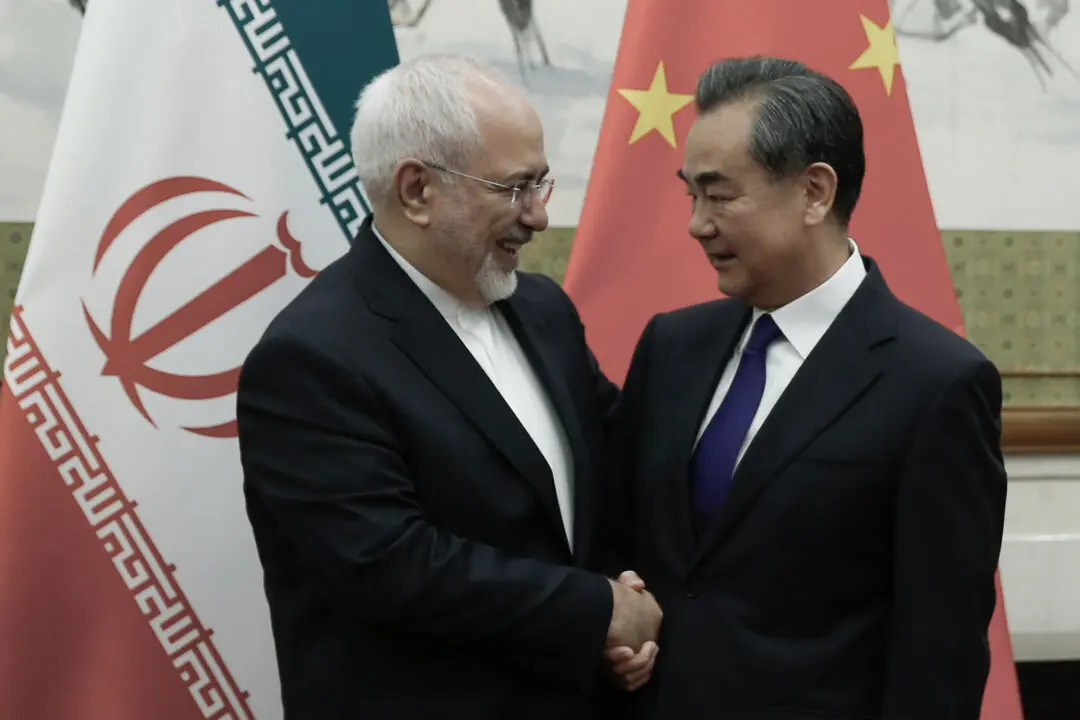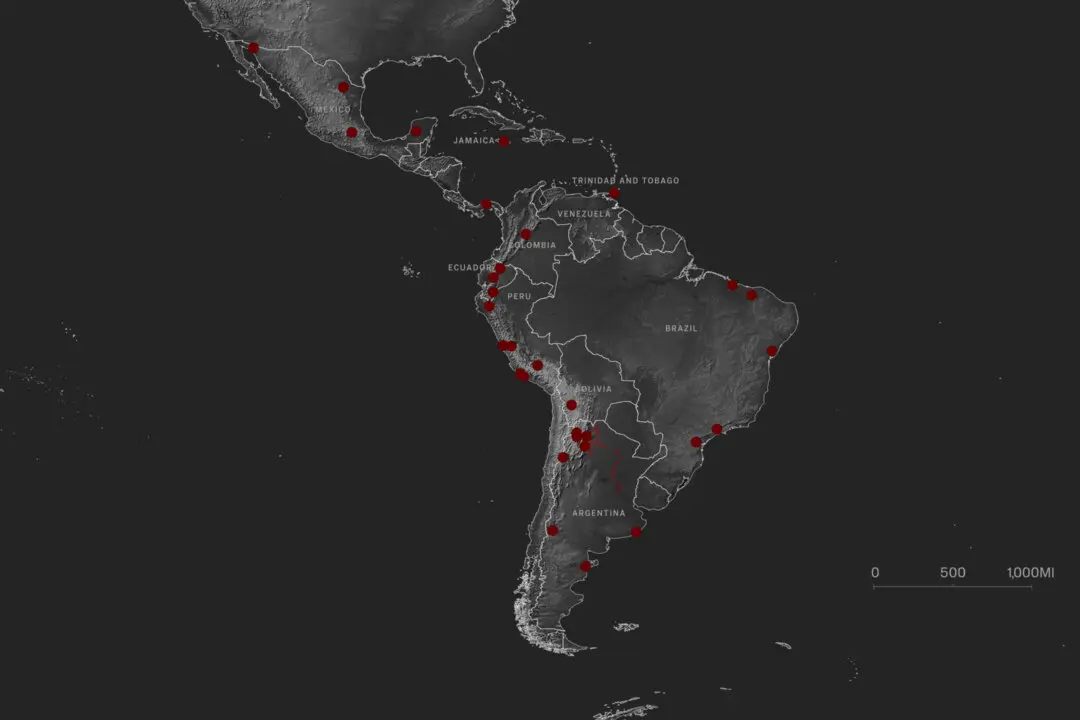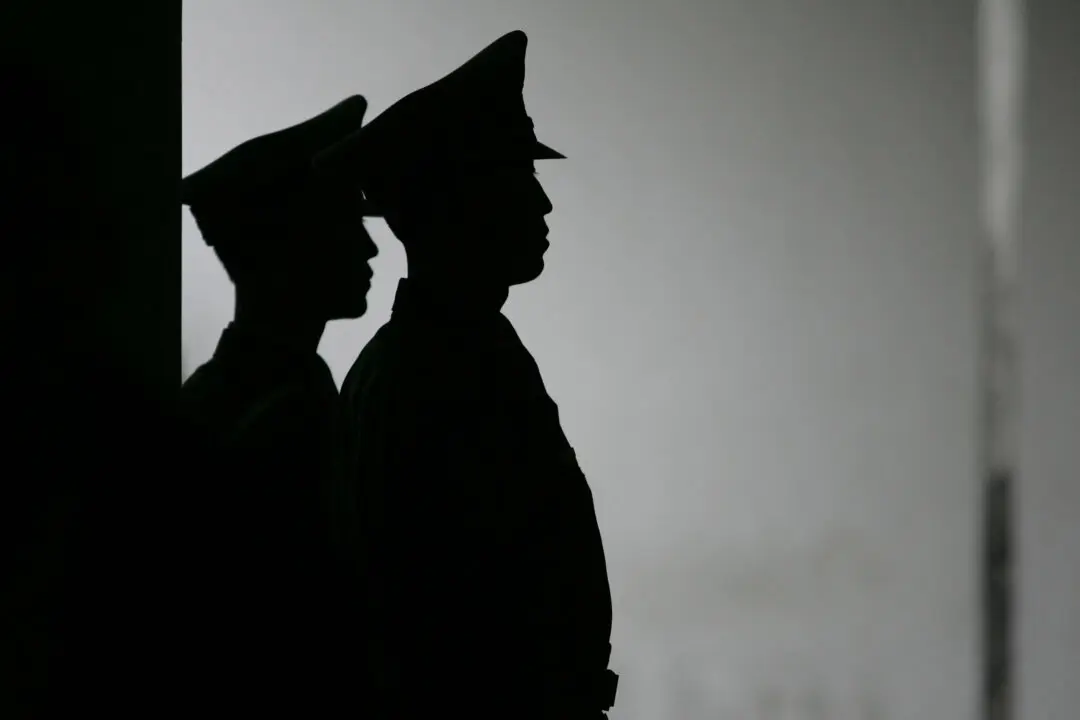Tens of thousands of ethnic Mongolians have signed a petition in protest against Beijing’s new push to promote the country’s official language Mandarin in Inner Mongolia, a move that some have described as “cultural genocide.”
Mandarin is the official dialect and language spoken by China’s majority Han ethnicity. The new policy has sparked fear among ethnic Mongols in the region that it would gradually wipe out their culture and endanger their very identity.
Over the past week, throngs of students, teachers, and parents have gathered at local school grounds, singing and chanting slogans in their native tongue while refusing to go back to the classroom, videos circulating on the internet show.
In Inner Mongolia’s capital Hohhot alone, around 20,000 have signed a petition against the new education guidelines, according to the New York-based advocacy group the Southern Mongolian Human Rights Information Center (SMHRIC). Videos released by the group show multiple folders of petition sheets filled with signatures coupled with red fingerprints—a common method of identification in China.
Enghebatu Togochog, director of SMHRIC, estimates that hundreds of thousands of ethnic Mongols have signed the petition, noting that they have seen 2,700 signatures from a “small rural remote community” alone. The number of students who have taken part in the school strike is likely around 300,000, he said.
“Considering the total mobilization of the entire Southern Mongolian society, it is safe to say that almost the entire Southern Mongolian population … has taken part of this massive nonviolent civil disobedience movement in one form or another,” he told The Epoch Times. Latest government data from 2010 to 2015 indicates that around 4.2 to 4.3 million ethnic Mongols live in the region, making up roughly 17.1 percent of the population.
Among the signatories were some 300 staff members from Inner Mongolia’s state-run television, the Hohhot-based Inner Mongolia Radio and Television. In video footage that has gone viral, they each signed their names and stamped their fingerprints along the outline of a circle—a popular way to avoid singling out any leaders—in a conference room decorated with a calligraphy painting that read “Party media bear the surname of the Party.”
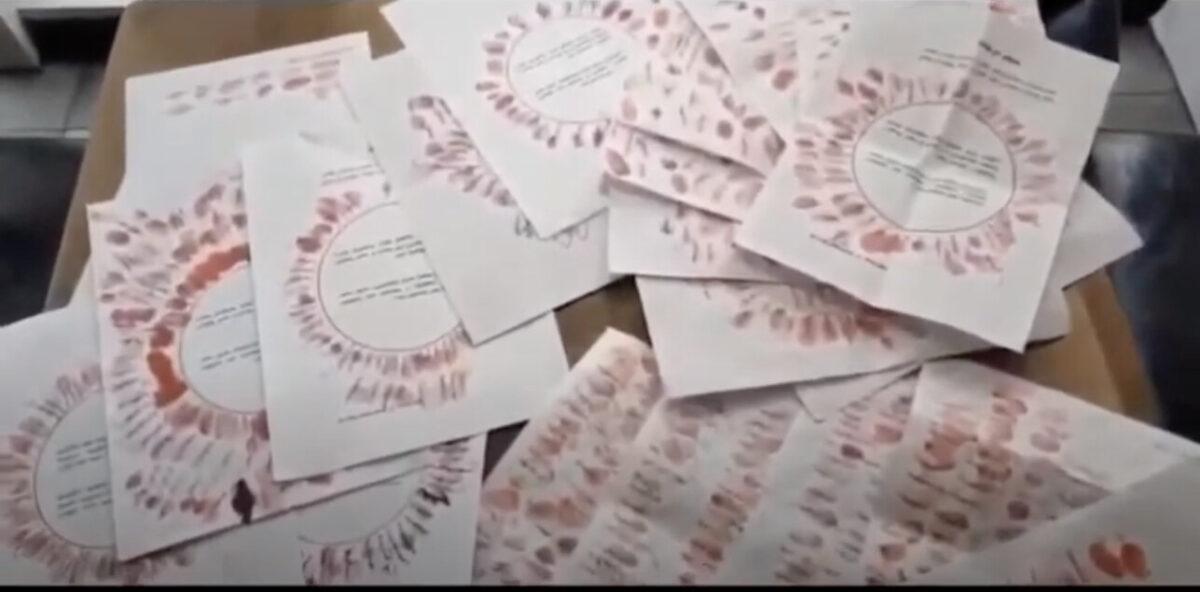
Crackdown
The Chinese regime reacted swiftly to the strikes by mobilizing local police and detaining activists.In one district of Tongliao City alone, nearly 140 ethnic Mongols have been accused of “picking quarrels and provoking troubles,” a common charge used on political dissidents. Their headshots, apparently captured from zoomed-in surveillance footage, were posted on government websites, which offered monetary rewards for their capture.
Government and school notices seen by The Epoch Times showed that ethnic Mongolian government workers in multiple regions were told to send their kids back to schools, and were threatened with severe disciplinary action if they did not comply.
From Aug. 29 to Sept. 2, the regime’s national police chief Zhao Kezhi toured around various police bureaus in Inner Mongolia. In a speech that appears to forebode a harsh crackdown, he told local police to “follow the Chinese Communist Party’s leadership no matter what circumstances” and “take strict measures to prevent terrorism.” They must fight the “tough battle” ahead with an “iron grip,” he said.
Two parents, a teacher and her husband, have reportedly committed suicide, according to Bitter Winter, an online magazine on religious freedom and human rights in China. Togochog put the current death toll at four.
A “massive man-hunt and mass arrests are on the way. But, the Southern Mongolians are determined to risk their life to face all the challenges ahead,” Togochog said.
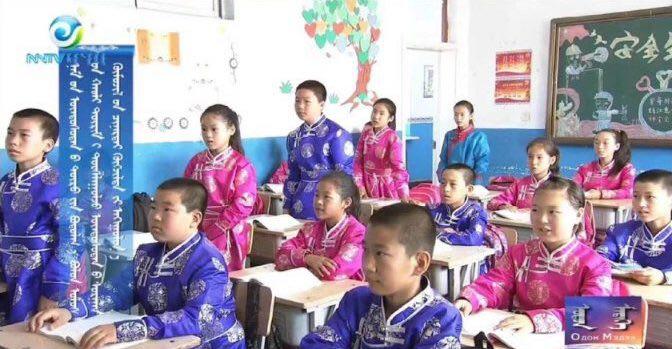
Fake Propaganda
State-owned news outlets have posted photos showing children in traditional Mongolian gown or school uniforms reading or playing in various Hohhot primary schools, supposedly on their first day back from summer break.Locals, however, called such scenes staged. Authorities have “borrowed” Han students as actors, they said.
“These kids would ‘perform’ from one place to another,” Suwdaa (alias) from the region’s eastern tip Xilingol League told The Epoch Times. Some of the children, she noted, were dressed in clothes meant for performances rather than daily attire.
“Many Mongolian schools in Inner Mongolia are empty since the kids are not back,” she added.
While Chinese officials said the new policy would not affect Mongolian-language teaching, there have been “major changes” in the new textbooks that made the promises ring hollow, said Suwdaa.
She said a popular folk verse professing pride in their culture and language, which many ethnic Mongol youths could recite by heart, has been removed from textbooks. Also gone were songs praising their historical heroes, which have been replaced with Chinese ballads.
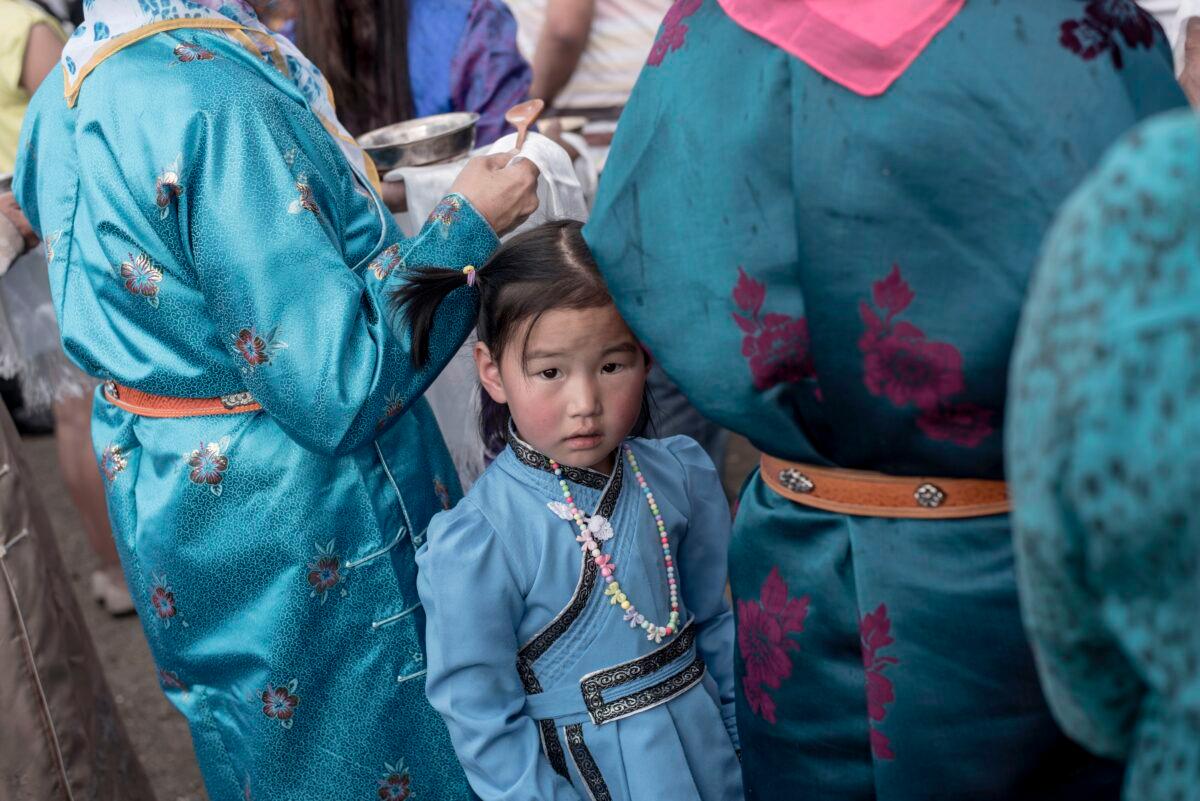
Fred Dufour/AFP via Getty Images
The teachers were instructed to talk to each parent to get the children back to school. “There’s been endless calls and endless text messages. The parents just won’t accept it,” she said.
A teacher from Xilingol League who spoke on condition of anonymity said that a local ethnic Mongolian police officer has been suspended for opposing the policy. Disciplinary officials have also sought out teachers from their school one-by-one for a “talk”. Privately, some have prepared for possible dismissal.
“We are now of one heart—parents, students, teachers, and Mongols in all social sectors. We have never been so united.”

